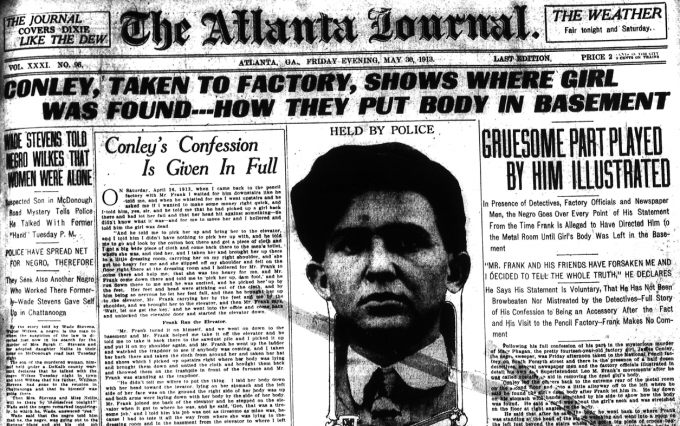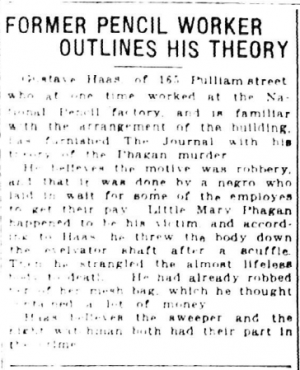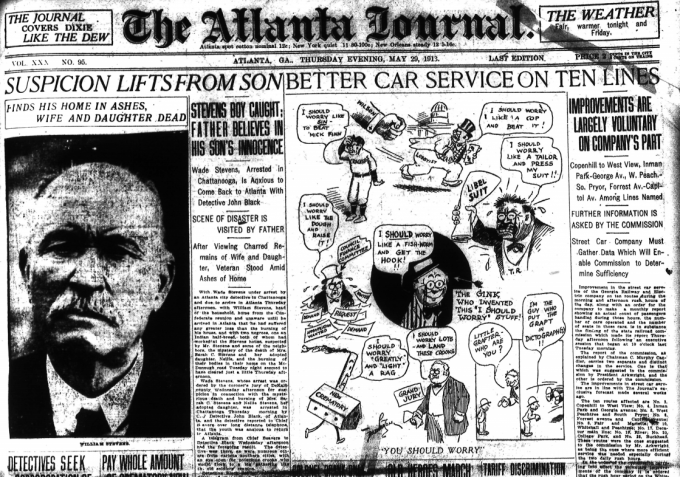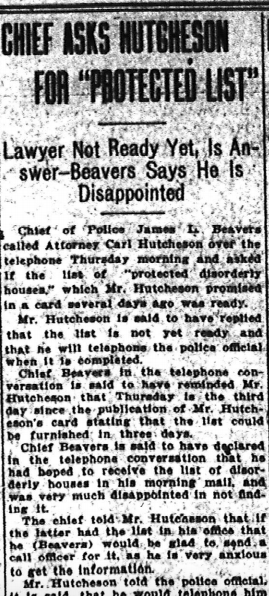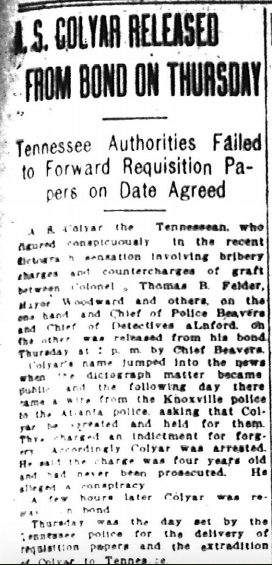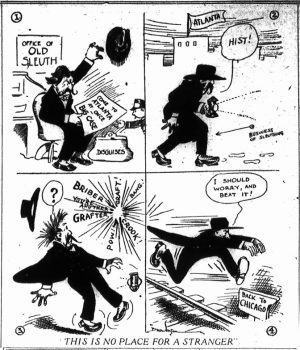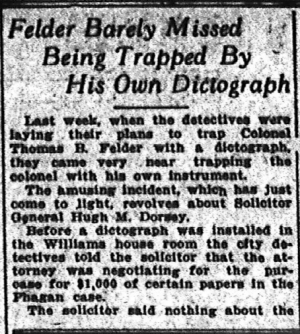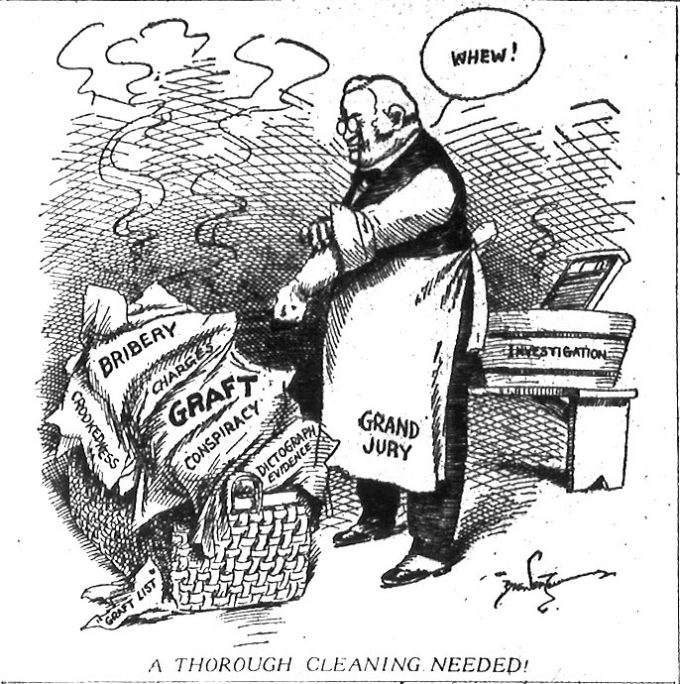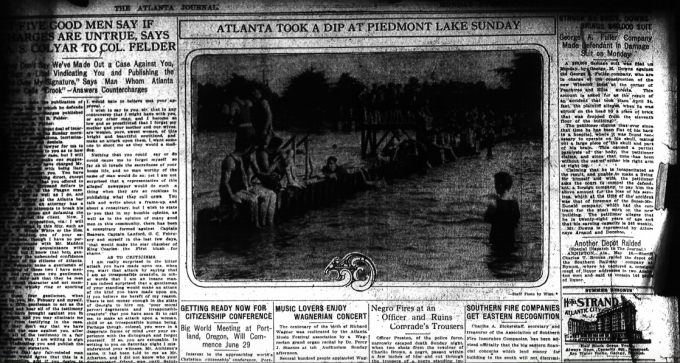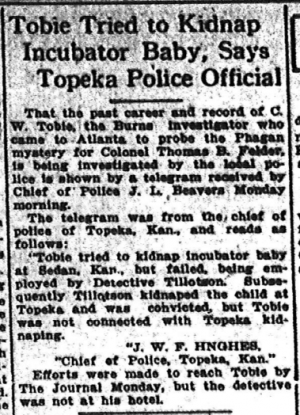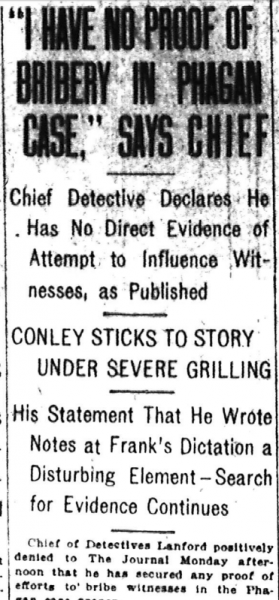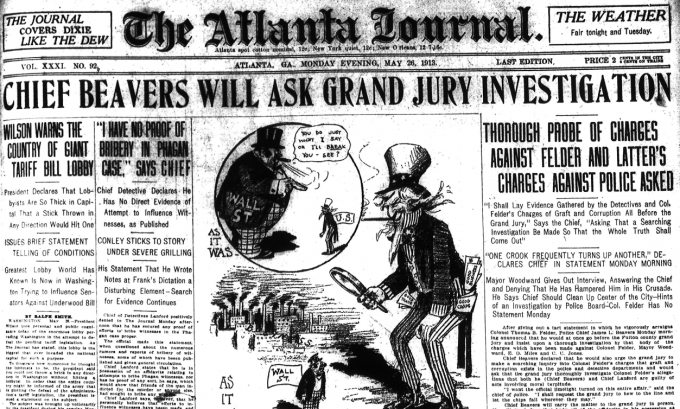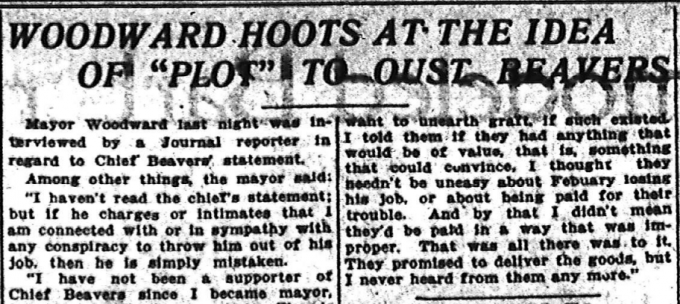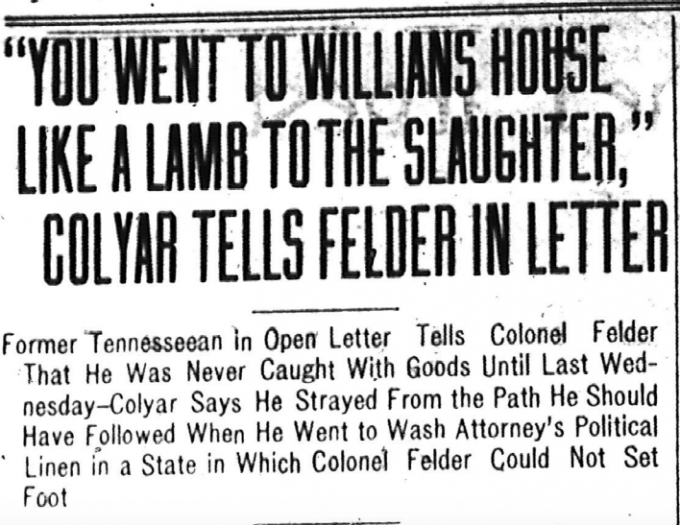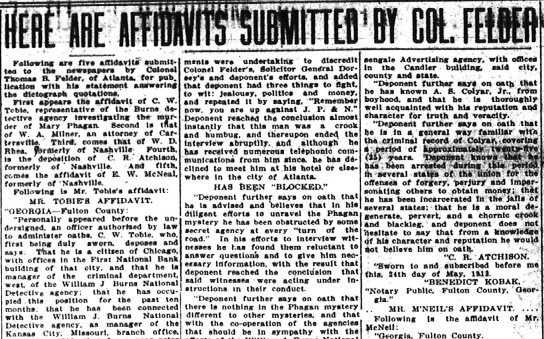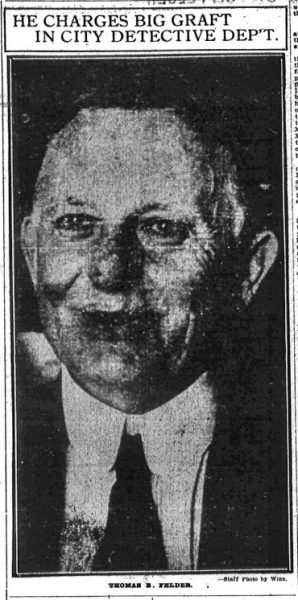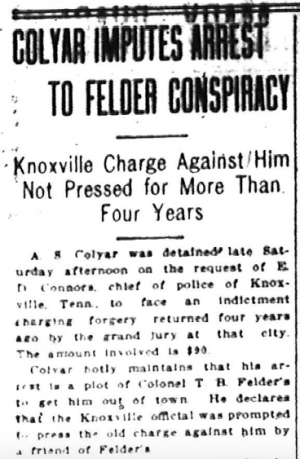 Another in our series of new transcriptions of contemporary articles on the Leo Frank case.
Another in our series of new transcriptions of contemporary articles on the Leo Frank case.
Atlanta Journal
Saturday, May 31st, 1913
Meeting Called by Foreman Lewis H. Beck, but He Declined to Say What the Jury Will Investigate
WILL FELDER’S CHARGES BE SIFTED BY JURY?
Chief Beavers Silent—Colonel Felder Not Informed About Meeting, but Says It’s Matter of Indifference to Him
A special session of the Fulton county grand jury has been called for next Tuesday morning at 10 o’clcok, the purpose of which is unannounced and unknown.
The call was issued by the foreman, Lewis H. Beck, who declines to state what matters will be considered by the grand jury. The impression is general that Foreman Beck has yielded to the demands of Police Chief James L. Beavers that a searching probe be made into the charges preferred by the city detectives against Colonel Thomas B. Felder, involving an alleged attempt to bribe Secretary G. C. Febuary to take certain papers from the safe of the chief of detectives, and also to thoroughly inquire into Colonel Felder’s counter charges that the police and detective departments are corrupt and are affording protection to disorderly houses and gambling resorts.
NOT THE PHAGAN CASE.
Solicitor General Hugh M. Dorsey gave out the first information that the grand jury had been called in special session, but stated that he did not know why nor what for. He did not think the called session would consider any phase of the Phagan murder case, although some persons were inclined to believe the grand jury might take up the confession of James Conley, the negro sweeper. However, if this were true Solicitor Dorsey would certainly know about it, for it would be he that would bring this matter to the grand jury’s attention.
Chief Beavers only smiled when questioned concerning the special meeting of the grand jury. He would not say whether he was advised concerning it or whether it had been called at his instance. The chief’s attitude strengthens the belief that the grand jury is preparing to investigate the charges of the city detectives and the counter charges of Colonel Felder. Continue Reading →


